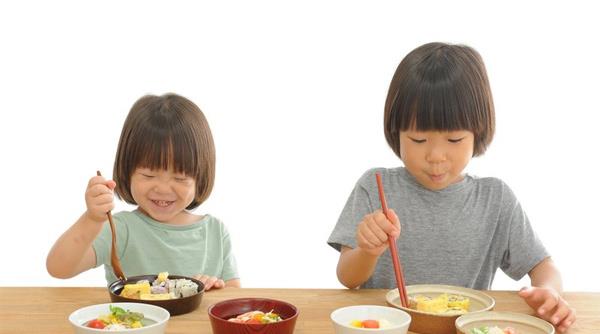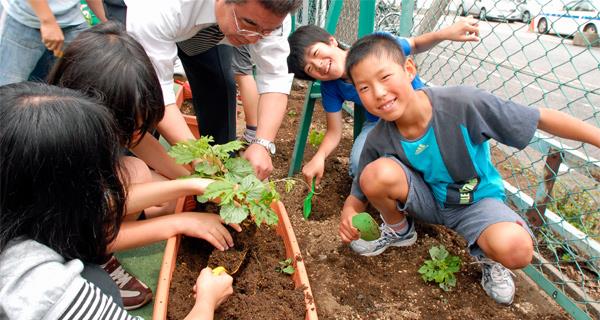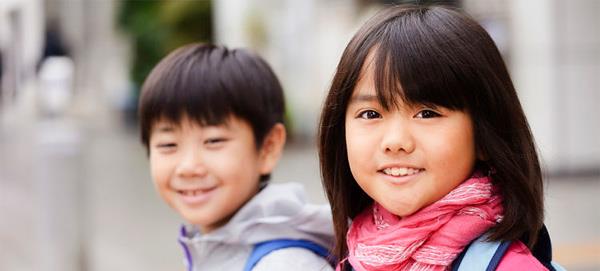The secrets of Japanese parenting can be applied to babies as well. To promote your child's development, you can learn from Japanese parents to apply the following tips
content
6 Japanese parenting tips for babies
The secret for super strong kids
The secret to building a child's first personality
6 Japanese parenting tips for babies
Update these 6 tips now, friends!
1 / Never compare your baby with other kids
The first rule of Japanese parenting in early life is not to compare your baby to other babies. Each child grows up in its own way. The comparison only makes parents feel worried and more pressure when raising children. In addition to checking the most basic metrics such as weight and height, you should not be too concerned about your child's development.
2 / Always follow the child
The 0 - 1 year period is still too early to teach children to be independent. Babies cannot protect themselves and are aware of their actions. You need to be with your children to care for and educate them little by little. This is an important note in the principles of Japanese parenting, because Japanese fathers and mothers are very attached to their children.
3 / Let your child practice every day
There are many things you can do with an infant: exercise, massage, stimulate your baby's senses ... Teaching your baby to learn at this age is to stimulate the sensory sensitivity of the baby 's senses. little. It is important that you provide appropriate stimuli for your baby's characteristics, according to the stage your baby is going through.
4 / Study with your child
You pay great attention to learning through your child's senses early in life. You play with your baby more, giving him as many different sensory experiences as possible. The first year is when your baby undergoes the most drastic changes.

Sticking with your child is a hallmark of Japanese parenting
5 / Stay healthy
A sick spell can cause a baby's development to be stopped. With the goal of creating the most neural connections in the first year, parents need to remember to maintain the health of their children, to avoid letting their babies suffer from common respiratory and digestive diseases. At the same time, parents also need to pay attention to their own health care so as not to interrupt the child's discovery and learning.
6 / Always keep excitement when interacting with your baby
Only when you really enjoy what your baby is going through, do you have a great source of inspiration when caring for your baby, giving up good ideas to teach your baby to learn new things, stimulate the development of child.
The secret for super strong kids
There is no secret in Japanese parenting to make your baby super healthy but her scientific nutrition and active lifestyle.

Nutrition is one of the most important things in Japanese parenting
1 / Rich and vegetable diet
The Japanese family's diet often focuses on vegetables and less meat and fish. Watery vegetables such as bok choy, broccoli, bean sprouts, herbs ... are used a lot in dishes. Rice is the main grain in all meals, but the combination of rice dishes with diverse soups, soups and side dishes helps to limit hyperglycemia. In addition, this diet also helps bring an abundant source of energy to the body.
In Japanese parenting, children are taught food farming, cooking and eating etiquette at home and at school. Even babies are also involved in the process of preparing food. This is one of the ways to teach children to form a healthy eating habit for children.

Japanese children are allowed to participate in growing vegetables to know how food is formed
During meals, Japanese children are exposed to a wide variety of foods, all contained in small colorful dishes or bowls, from rice dishes to soup, mixed seaweed, grilled fish or eel meat ... This kind of food division helps babies have conditions to come into contact with many different foods without feeling bored.
2 / Mobility, movement and movement
Even in preschools, children have been encouraged to exercise a lot and participate in many sports activities. There is even a sports festival in all Japanese schools every October. This festival, called "Taku no Hi", takes place nationwide and is enjoyed in all schools.
When entering primary school, regardless of age, Japanese children are encouraged to go to school and go home by themselves on foot. This is a huge difference in the Japanese parenting style compared to many other countries. Many Japanese families try to devote at least 60 minutes a day to moderate intensity physical activity.
The secret to building a child's first personality
1 / Stick with the child but not embrace much
Japanese mothers can take their babies everywhere, from parks to shopping. This creates an undeniable bond between mother and child. Japanese children often sleep together and even bathe with their parents until they go to school. Despite this attachment, Japanese parents rarely embrace their children.

Letting young children find their own way to school is a unique feature of the Japanese parenting style
2 / Teach your children to put themselves in other people's shoes
When raising a Japanese-style child, you remember to encourage your child to put yourself in the shoes of others to understand psychology , to decide on your actions appropriately. This helps the baby calm down and behave in a calm manner.
3 / Prepare lunch for your child to go to school
Although Japanese mothers are ready to wake up early to prepare elaborate bento boxes for their children. You can see in the lunch box at school a lot of nutritious foods like fish, vegetables, tofu, seaweed and all beautifully decorated.
4 / Do not stress too much about finding the right entertainment for your child
In Japan, parents did not panic when they saw violent movie trailers being shown right before the animated trailer in theaters. In their manga comics there is no shortage of sexy images, but there are cute comics, toys or kawaii images everywhere to create balance. This is also a difference in Japanese parenting.
5 / Love flowers and take flowers seriously
This is again a unique Japanese parenting style. Picnic under the cherry trees during the festive season is a traditional activity for all Japanese families. Cherry blossom viewing festivals, also known as hanami, are held across the country. Everywhere, families sit under the beautiful pink sakura arches, eating and chatting. On these occasions, the children will be closely supervised, only allowed to run and play in certain places and times.
6 / Ethical education comes first
Japanese-style parenting does not set achievement criteria but the important thing is the moral education, which is cared for from the family to the education system.
Ethical education in the school system is specifically divided into four main topics: self-awareness, relationship with people around, relationship with social groups, relationship with the natural world and The universe.
Criteria The calculation needs to be practiced
Modesty, courage, democracy, discipline, righteousness, self-discipline.
Relationship with family members, friends
Be polite, grateful, respect parents, relatives
Be humble, gentle with you
For society
Have public responsibility, join social groups, contribute to the community
Respect teachers, respect traditions and other cultures, love the nature of the country
To nature and the universe Respect nature, respect for life, a sharp and elegant aesthetic.
Since entering kindergarten, children have learned the rules of conduct expressed through honorifics: Pleased to meet you, Thank you before and after meals, Greetings when leaving home and when you go home ...
Up to the Primary level, children learn to behave politely in everyday behavior, develop personality and civic awareness in national construction.
Level Two, how to react to criticism, understanding and respect for gender, attitude towards truth ...
Ethics is a compulsory subject in the program, but there are no content rules and no scoring. Teachers design their own lessons in many ways:
Introduce good books about moral examples
Visit the museum, learn the example of good character and good character
Explain human idioms
Tell touching real stories that encourage students to be virtuous
The organization of anonymous letters has many purposes: to encourage classmates, to visit with the elderly ...
In addition, teachers can use real-life stories that are going on, open discussions about how if they are bullied at school, how to help their neighbors ... express their opinions and propose solutions.
Ethical content is not just confined to official books and school hours. On the school grounds, elementary school children show their taught manners by taking care of living creatures raised by the class, such as taking care of rabbits, aquariums, watering plants ... Harmony with nature helps the soul. Children are more pure and gentle, are responsible and know how to take care of the community.
Not only in moral hours, but other educational activities also contribute to fostering character for students. Literature and history teaches students how to love history and respect the culture of the country. Science subject gives children a clearer view of biological life in the environment and develops an attitude of respect for nature.
Extracurricular activities at school are also an environment for Japanese children to cultivate morality. Sports, music, theater, and comic clubs also help foster morality, help students determine their own abilities and efforts, develop teamwork skills and learn how to solve problems. Contradictions may occur.















